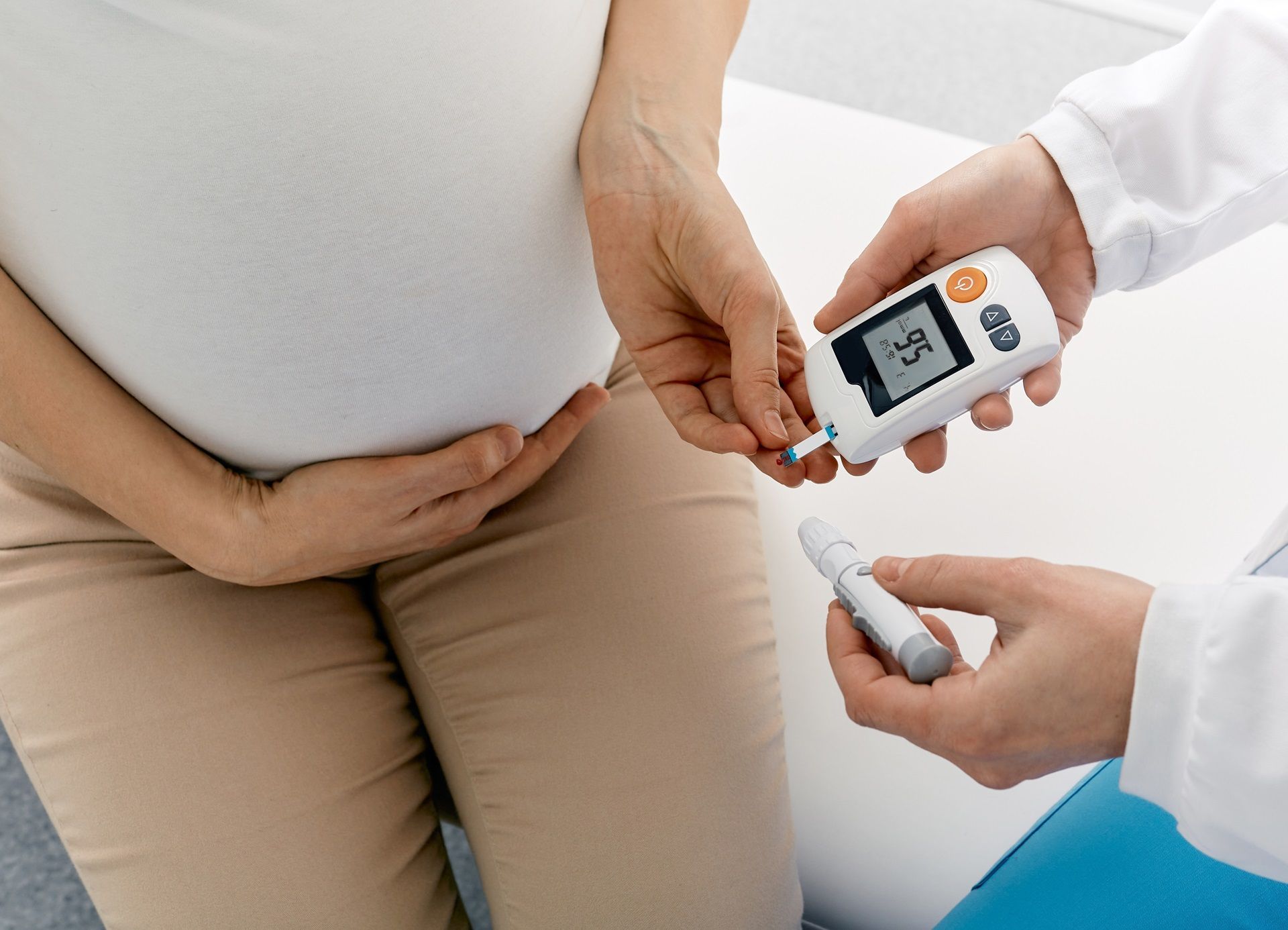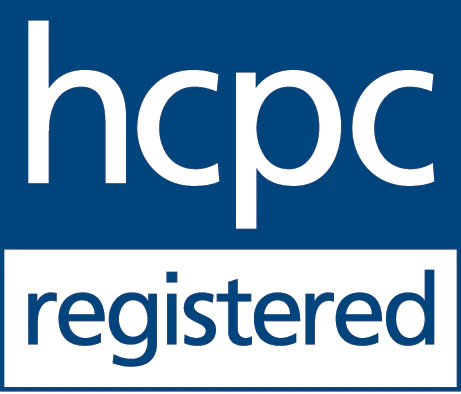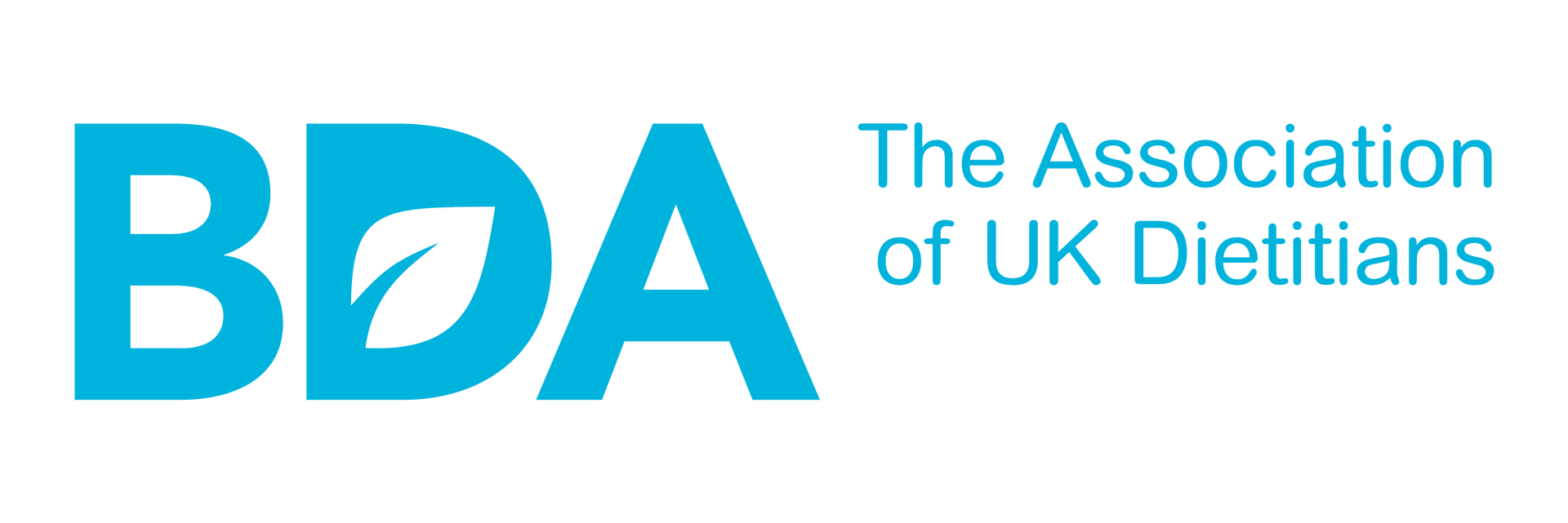What is gestational diabetes?

Gestational diabetes is diabetes that can happen during pregnancy. It means the pregnant person has high blood glucose levels and additional care will be needed to help manage this. Eating the right kind of diet, keeping active and taking medication (for some) can be very effective steps in the management of gestational diabetes.
Gestational diabetes occurs when the body cannot produce enough insulin during pregnancy to meet increased demands. Factors that contribute to its development include:
- Hormonal Changes: Pregnancy hormones can interfere with insulin function.
- Insulin Resistance: Increased body weight and changes in metabolism can lead to higher insulin resistance.
- Genetic Factors: A family history of diabetes can increase risk.
- Obesity: Living with overweight or obesity prior to pregnancy raises the likelihood of developing gestational diabetes.
- Age: The older we are the higher the risk.
- Previous Gestational Diabetes: A history of gestational diabetes in prior pregnancies increases the risk in future pregnancies.
Managing these factors can help reduce the risk.
What tests determine gestational diabetes?
Women at risk of gestational diabetes will usually be checked between 24 to 28 weeks of pregnancy.
The main test is an oral glucose tolerance test (OGTT). The test usually takes over 2 hours to complete. A fasting blood glucose is checked before the test. The person is then given a sugary drink. Following this the person is asked to rest for 2 hours, before another blood glucose test is taken. This then determines how well the body has dealt with the sugary drink.
If either the fasting blood glucose was 5.6 mmol/l or above 7.8mmol/l 2 hours after the sugar drink, gestational diabetes will be diagnosed.
What are the associated risks of gestational diabetes?
Getting a diagnosis of gestational diabetes during pregnancy can be worrying. But the good news is managing blood glucose levels well can still mean an enjoyable and healthy pregnancy.
If gestational diabetes is left untreated it can lead to serious health problems for the mother and baby:
*induced labour
*caesarean section
*the baby could be at risk of living with overweight/obesity and developing type 2 diabetes in later life.
*the baby may have jaundice after birth
*infant death.
Diet advice for gestational diabetes
If you have gestational diabetes, a balanced diet can help manage blood sugar levels. Here are some dietary guidelines to follow:
- Carbohydrate Control: Choose complex carbohydrates with a low glycemic index, like whole grains, legumes, and vegetables. Limit refined sugars and simple carbs.
- Regular Meals: Eat smaller, more frequent meals to help stabilize blood sugar levels. Aim for three main meals and some snack (as needed).
- Fibre Rich Foods: vegetables and some fruit, whole grains, and legumes.
- Lean Proteins: Incorporate lean proteins such as chicken, fish, eggs, beans, and tofu to promote satiety.
- Healthy Fats: Focus on sources of healthy fats, such as avocados, nuts, seeds, and olive oil, while limiting saturated.
- Monitor Portion Sizes: Be mindful of portion sizes to avoid spikes in blood sugar. Especially for carbohydrate foods, e.g. bread, pasta, rice, potatoes.
- Stay Hydrated: Drink enough water and avoid sugary drinks.
- Consult a Dietitian! Work with a registered dietitian for personalised plan that fit your needs.
Want more help? Get in touch ....
Send us a message
Contact Us
Thank you for contacting us.
We will get back to you as soon as possible.
Oops, there was an error sending your message.
Please try again later.
Spooner Nutrition








